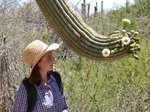
Cooperation not only is the foundation of social behavior in humans and other organisms, but also underpins many urgent environmental and social problems resulting from over-consumption of or under-contribution to shared resources. Many of these issues, such as air pollution and overfishing, span regional or national boundaries. However, humans likely evolved to cooperate locally with members of small groups, at the expense of people in other groups. How can we overcome the limits of group favoritism to achieve cooperation on the inter-group, global scale needed to address these critical challenges?
The goal of my AIAS-COFUND junior fellowship is to leverage interdisciplinary research on within-group cooperation to advance our knowledge of inter-group cooperation, as applied to environmental dilemmas. Taking an evolutionary perspective, I will investigate when and why people confer benefits on others versus acquire more resources for themselves. I will consider four factors known to affect within-group cooperation: 1) formation of cooperative reputations, 2) punishment of non-cooperators, 3) inequality in costs associated with cooperation, and 4) threats to group success. In lab and field experiments designed to capture real-life situations, I will investigate how these factors scale up to affect inter-group cooperation over environmental resources: for example, whether punishment can function effectively across group boundaries to enforce attainment of environmental targets. The findings will provide insight into the evolution of group-level interactions, and suggest solutions to current environmental concerns.
Project title:
Inter-group environmental dilemmas: can we scale up from local to global cooperation?
Area of research:
Behavioral ecology
Fellowship period:
1 Feb 2016 – 30 Jun 2018
Fellowship type:
AIAS-COFUND Marie Skłodowska-Curie fellow

This fellowship has received funding from the European Union’s Seventh Framework Programme for research, technological development and demonstration under the Marie Skłodowska-Curie grant agreement No 609033 and The Aarhus University Research Foundation.
